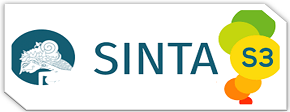A Conceptual Framework For Employee Performance In The Islamic Hospitality In Indonesia
DOI:
https://doi.org/10.30587/jurnalmanajerial.v10i02.5306Keywords:
Islamic, Ethics, Toxic, Leadership, Employee, PerformanceAbstract
Background – There are pressures experienced by Islamic hospital employees in Indonesia who are exposed to negative workplace gossiping and toxic leadership has an effect on the performance of Islamic hospital employees in Indonesia. These problems can be minimized by applying an Islamic work ethics in order to improve the employees performance of Islamic hospital in Indonesia.
Purpose – The purpose of this study was to determine the performance of employees at the Indonesian Islamic Hospital.
Design/ Methodology/ Approach – This study uses the COR basis in analyzing phenomena and research findings. The population of this study was medical staff throughout the Indonesian Islamic Hospital. The number of samples was determined using the Isaac equation table so that a total sample of 300 respondents was obtained. Retrieval of data using questionnaires that are distributed online. Measurement data uses answers Strongly Agree, Agree, Netral, Disagree, Strongly Disagree, with a rating scale of 1 to 5 Data processing uses the SMART PLS3 application.
Findings – The findings of this study revealed that staff performance at the Indonesian Islamic Hospital is significantly impacted by toxic leadership negative workplace gossiping, and islamic work ethics. This can be seen from the results of the discriminate validity test and the final results of Smart PLS3 data processing.
Conclusion – The study's findings are consistent with another study that found that Indonesian Islamic Hospital employees perform better when they adhere to islamic work ethics has a significant positive effect on Employee Performance. Meanwhile, toxic leadership and negative workplace gossiping significant negative effect on employee performance at the Islamic Hospital in Indonesian.
Research Implication – The results of this study are expected to be input for managers in Islamic Hospitals in Indonesia, especially knowing the effect of Islamic work ethics, Toxic Leadership, Negative Gossip in the Workplace on employee performance as an intervening variable, becoming learning material and applying knowledge in the field of management, especially in the field of management of human resources and can be an additional reference for further research and as a consideration for Islamic Hospitals in Indonesia which are facing similar problems.
Research Limitations – The results of this study can be an opportunity for further research development by focusing on more specific target respondents and adding variables that have a role in Islamic work ethics, toxic leadership, and negative workplace gossiping to improve employee performance at the Indonesian Islamic Hospital.
References
Abdul Latiff, N. (2021). The Effect of Workplace Spirituality on Employee Performance. Issues and Perspectives in Business and Social Sciences, 1(1), 22–27. https://doi.org/10.33093/ipbss.2021.1.3
Aboramadan, M., Turkmenoglu, M. A., Dahleez, K. A., & Cicek, B. (2021). Narcissistic leadership and behavioral cynicism in the hotel industry: the role of employee silence and negative workplace gossiping. International Journal of Contemporary Hospitality Management, 33(2), 428–447. https://doi.org/10.1108/IJCHM-04-2020-0348
AFLAH, K. N., SUHARNOMO, S., MAS’UD, F., & MURSID, A. (2021). Islamic Work Ethics and Employee Performance: The Role of Islamic Motivation, Affective Commitment, and Job Satisfaction. Journal of Asian Finance, Economics and Business, 8(1), 997–1007. https://doi.org/10.13106/jafeb.2021.vol8.no1.997
Aini, Q. (2020). Analysis of the Effect of Islamic Leadership on Islamic Motivation and Performance of Employees Both Directly or Indirectly Through Islamic Work Ethics. Journal of Political Science and Leadership Research, 6(1), 1–14. www.iiardpub.org
Akca, M. (2017). The Impact of Toxic Leadership on Intention to Leave of Employees. November.
Al Zaabi, H. H., Abu Elanain, H. M., & Ajmal, M. M. (2018). Impact of toxic leadership on work outcomes: an empirical study of public banks in the UAE. International Journal of Public Sector Performance Management, 4(3), 373. https://doi.org/10.1504/ijpspm.2018.10014365
Albashiti, B., Hamid, Z., & Aboramadan, M. (2021). Fire in the belly: the impact of despotic leadership on employees work-related outcomes in the hospitality setting. International Journal of Contemporary Hospitality Management, 33(10), 3564–3584. https://doi.org/10.1108/IJCHM-03-2021-0394
Annisa, N. N., Esterina, M., Amallia, F., & Cahyani, R. R. (2022). the Influence of Human Relations and Islamic Work Ethic on Employee Performance At Lazismu Purworejo Region. International Journal of Economics, Business and Accounting Research (IJEBAR), 6(1), 856. https://doi.org/10.29040/ijebar.v6i1.4517
Asha’ari*, M. J., & Daud, S. (2018). Sustainable Transport And Corporate Sustainability Performance: Mediating Role Of Islamic Work Ethics. July, 530–540. https://doi.org/10.15405/epsbs.2018.07.02.57
Bai, Y., Wang, J., Chen, T., & Li, F. (2020). Learning from supervisor negative gossip: The reflective learning process and performance outcome of employee receivers. Human Relations, 73(12), 1689–1717. https://doi.org/10.1177/0018726719866250
Behery, M., Al-Nasser, A. D., Jabeen, F., & El Rawas, A. S. (2018). Toxic leadership and organizational citizenship behavior: A mediation effect of followers© trust and commitment in the middle east. International Journal of Business and Society, 19(3), 793–815.
Chupradit, S., Jasiyah, R., Alazzawi, F. J. I., Zaroni, A. N., Norvadewi, N., Mahmudiono, T., Sabit, S. H., Suksatan, W., & Bykanova, O. (2022). The impact of Islamic work ethics on organisational culture among Muslim staff. HTS Teologiese Studies / Theological Studies, 78(4), 1–6. https://doi.org/10.4102/hts.v78i4.7332
Cui, Z. (2020). The relationship between negative workplace gossip and organizational citizenship behavior: An explanation from social exchange theory. Clausiuspress.Com, Icssem. http://clausiuspress.com/conferences/LNEMSS/ICSSEM 2020/ICSSEM2020041.pdf
Endrian, I. M., Silvianita, A., & Karyawan, K. (2021). PENGARUH KEPUASAN KERJA TERHADAP KINERJA KARYAWAN PT MITRA LESTARI SEJATI EFFECT OF WORK SATISFACTION ON PT MITRA LESTARI SEJATI EMPLOYEE ’ S. 8(2), 1218–1225.
Filatrovi, E. W., Kurniawati, N. I., & ... (2021). Mengelola Kinerja Karyawan Bank Syariah Di Masa Pandemi Covid-19 Melalui Islamic Work Ethics. Jurnal Ilmiah Ekonomi …, 7(02). http://www.jurnal.stie-aas.ac.id/index.php/jei/article/view/2744
Harinoto, Sanusi, A., & Bogetriatmanto. (2018). Organizational culture and work commitment mediate the Islamic work ethos on employee performance. Academy of Strategic Management Journal, 17(5), 1–8.
Hattab, S., Wirawan, H., Salam, R., Daswati, D., & Niswaty, R. (2022). The effect of toxic leadership on turnover intention and counterproductive work behaviour in Indonesia public organisations. International Journal of Public Sector Management, 35(3), 317–333. https://doi.org/10.1108/IJPSM-06-2021-0142
Hidayat, S., Agustang, A., & Pertiwi, N. (2022). The Effect of Land Use and Traffic Performance on Urban Air Quality in the Maminasata Peri-Urban Area. Budapest International Research and Critics Institute (BIRCI-Journal): Humanities and Social Sciences, 5(1), 2918–2932. https://doi.org/10.33258/birci.v5i1.3921
Ibrahim, A., & Kamri, N. ’Azzah. (2013). Measuring the Islamic Work Ethics: An Alternative Approach. International Convention on Islamic Management, November 2013, 135–163. https://doi.org/10.13140/RG.2.1.2768.0725
Khadijah, a. . S., Kamaluddin, N., & Salin A.S.A.P. (2015). Islamic Work Ethics ( IWE ) Practice among Employees of Banking Sectors. Middle East Journal of Scientific Research, 23(5), 924–931. https://doi.org/10.5829/idosi.mejsr.2015.23.05.22173
Khan, A. G., Li, Y., Akram, Z., & Akram, U. (2022). Why and how targets’ negative workplace gossip exhort knowledge hiding? Shedding light on organizational justice. Journal of Knowledge Management, August. https://doi.org/10.1108/JKM-12-2020-0930
Khan, M. R., Khan, H., Jan, S. A., Javad, A., & Khattak, A. U. (2021). Mediating Effects of Employee Commitment in Relationship Between Toxic Leadership and Employees’ Performance. Humanities & Social Sciences Reviews, 9(4), 56–64. https://doi.org/10.18510/hssr.2021.949
Kong, M. (2018). Effect of perceived negative workplace gossip on employees’ behaviors. Frontiers in Psychology, 9(JUN), 1–12. https://doi.org/10.3389/fpsyg.2018.01112
Lee, H.-M., Chou, M.-J., & Wu, H.-T. (2016). Effect of workplace negative gossip on preschool teachers’ job performance: Coping strategies as moderating variable. International Journal of Academic Research and Reflection, 4(6), 1–13.
Liu, T., Liu, L., Cafferkey, K., & Jia, Y. (2022). Assessing the impact of negative workplace gossip on family satisfaction: Evidence from employees in China. Current Psychology, September. https://doi.org/10.1007/s12144-022-03241-5
Mohamed, L. A. (2013). Abstract Strategies to Resolve Toxic Leadership Styles Which Impede Employee Innovation. IE Business School.
Naeem, F., & Khurram, S. (2020). Influence of toxic leadership on turnover intention: The mediating role of psychological wellbeing and employee engagement. Pakistan Journal of Commerce and Social Science, 14(3), 682–713.
Nurfahmiyati, Assyofa, A. R., Iswati, S., & Maliki, Z. (2021). The Effect of Islamic Work Ethics Indicators on Employees Performance Study at BPRS AR. Jurnal Manajemen dan Bisnis, 18(1), 29–42.
Nurfaizi, M. I., & Muafi, M. (2022). The impact of Islamic work ethics and transformational leadership on job performance with mediating role of intrinsic motivation. International Journal of Research in Business and Social Science (2147- 4478), 11(3), 120–129. https://doi.org/10.20525/ijrbs.v11i3.1779
Öngel, G. (2022). behavioral sciences Examining Nurses ’ Vengeful Behaviors : The Effects of Toxic Leadership and Psychological Well-Being.
Paltu, A., & Brouwers, M. (2020). Toxic leadership: Effects on job satisfaction, commitment, turnover intention and organisational culture within the South African manufacturing industry. SA Journal of Human Resource Management, 18, 1–11. https://doi.org/10.4102/sajhrm.v18i0.1338
Pawirosumarto, S., Sarjana, P. K., & Muchtar, M. (2017). Factors affecting employee performance of PT.Kiyokuni Indonesia. International Journal of Law and Management, 59(4), 602–614. https://doi.org/10.1108/IJLMA-03-2016-0031
Pol, V. Der. (2020). Sy Ce S an Dv Ol Og En Ce Dv an Ce S Sy Ch Ol Og 健康跨期决策的领域特异性 En Ce. 28(11), 1926–1938.
Reyhanoglu, M., & Akin, O. (2022). Impact of toxic leadership on the intention to leave: a research on permanent and contracted hospital employees. Journal of Economic and Administrative Sciences, 38(1), 156–177. https://doi.org/10.1108/jeas-05-2020-0076
Rizani, M., Kurniaty, K., Widyanti, R., Shaddiq, S., & Yahya, M. Y. D. (2022). Effect of the Toxic Leadership on Organizational Performance With Workplace Deviant Behavior of Employees As Mediation. Strategic Management Business Journal, 2(01), 26–38. https://doi.org/10.55751/smbj.v2i01.28
Sa’adah, N., & Rijanti, T. (2022). The Role of Knowledge Sharing , Leader-Member Exchange (LMX) on Organizational Citizenship Behavior and Employee Performance : An Empirical Study on Public Health Center of Pati 1, Pati 2 and Trangkil in Central Java. International Journal of Social and Management Studies, 3(1), 112–131. https://www.ijosmas.org/index.php/ijosmas/article/view/87
Salahudin, S. N. bin, Baharuddin, S. S. binti, Abdullah, M. S., & Osman, A. (2016). The Effect of Islamic Work Ethics on Organizational Commitment. Procedia Economics and Finance, 35(December), 582–590. https://doi.org/10.1016/s2212-5671(16)00071-x
Saputra, F., & Mahaputra, M. R. (2022). Effect of Job Satisfaction , Employee Loyalty and Employee Commitment on Leadership Style ( Human Resource Literature Study ). Dinasti International Journal of Management Science, 3(4), 762–772.
Saqib, A., & Arif, M. (2017). Employee silence as mediator in the relationship between toxic leadership behavior and organizational learning. Journal of Managerial Sciences, 11(3), 83–104.
Sarwar, G., Cavaliere, L. P. L., Ammar, K., & Afzal, F. U. (2021). The impact of servant leadership on employee performance. International Journal of Management (IJM), 12(5), 165–173. https://doi.org/10.17051/ilkonline.2021.03.249
Shafique, et al. (2015). The Influence of Islamic Work Ethics on Job Satisfaction and Organization Commitment. Journal of Marketing and Consumer Research Journal, 14(1999), 23–29. http://www.iiste.org/Journals/index.php/JMCR/article/viewFile/24858/25461
Shafique, I., N. Kalyar, M., & Ahmad, B. (2018). The Nexus of Ethical Leadership, Job Performance, and Turnover Intention: The Mediating Role of Job Satisfaction. Interdisciplinary Description of Complex Systems, 16(1), 71–87. https://doi.org/10.7906/indecs.16.1.5
Syarif, A. H., Rahmawati, A., & Fasa, M. I. (2019). The Effect of Islamic Work Ethic and Productivity on Work Quality Through The Employee Performance. Review of Islamic Economics and Finance, 2(2), 40–52. https://doi.org/10.17509/rief.v2i1.22375
Tanuwijaya, J., & Jakaria, J. (2022). The transformational and toxic leadership effect on employee retention. Jurnal Manajemen dan Pemasaran Jasa, 15(1), 123–134. https://doi.org/10.25105/jmpj.v15i1.13348
Tian, Q. tao, Song, Y., Kwan, H. K., & Li, X. (2019). Workplace gossip and frontline employees’ proactive service performance. Service Industries Journal, 39(1), 25–42. https://doi.org/10.1080/02642069.2018.1435642
Walden, U., & Walden, D. (2021). Universitas Walden.
Watkins, D. (2021). Victims in the Dark Shadows: A Model of Toxic Leadership. Journal of Organizational Psychology, 21(2), 10–20. https://doi.org/10.33423/jop.v21i2.4193
Xie, J., Huang, Q., Wang, H., & Shen, M. (2019). Coping with negative workplace gossip: The joint roles of self-monitoring and impression management tactics. Personality and Individual Differences, 151, 1–27. https://doi.org/10.1016/j.paid.2019.06.025
Xie, J., Yan, M., Liang, Y., & Huang, Q. (2022). Why and When Negative Workplace Gossip Inhibits Organizational Citizenship Behavior. Management Communication Quarterly, 36(4), 710–735. https://doi.org/10.1177/08933189221095602
Yaghi, A., & Yaghi, M. (2021). Evaluating Organizational Hypocrisy within Universities as Toxic Leadership Behavior. Public Integrity, 23(4), 385–400. https://doi.org/10.1080/10999922.2021.1888536
Yao, Z., Luo, J., & Zhang, X. (2020). Gossip is a fearful thing: the impact of negative workplace gossip on knowledge hiding. Journal of Knowledge Management, 24(7), 1755–1775. https://doi.org/10.1108/JKM-04-2020-0264
Yuli Widyarini, Y., & Muafi, M. (2021). The influence of work-family conflict and Islamic work ethics on employee performance. International Journal of Research in Business and Social Science (2147- 4478), 10(3), 177–188. https://doi.org/10.20525/ijrbs.v10i3.1123
Zhou, A., Liu, Y., Su, X., & Xu, H. (2019). Gossip fiercer than a tiger: Effect of workplace negative gossip on targeted employees’ innovative behavior. Social Behavior and Personality, 47(5). https://doi.org/10.2224/sbp.5727
Zia-ud-Din, M., Shabbir, M. A., Asif, S. Bin, Bilal, M., & Raza, M. (2017). Impact of Strategic Leadership on Employee Performance. International Journal of Academic Research in Business and Social Sciences, 7(6), 1–10. https://doi.org/10.6007/ijarbss/v7-i6/2938






























 P-ISSN: 2354-8592 __ E-ISSN: 2621-5055
P-ISSN: 2354-8592 __ E-ISSN: 2621-5055 
